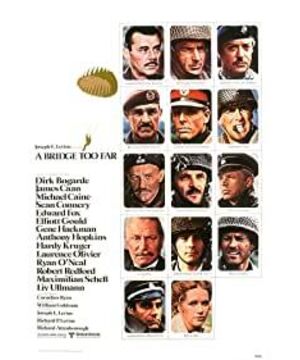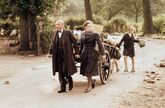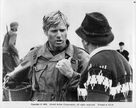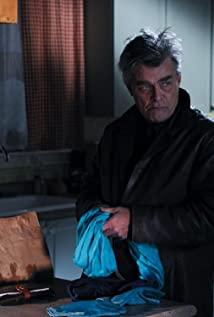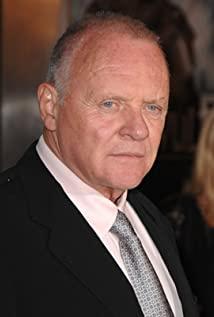After the Allied forces landed in Normandy, Patton in the south and Montgomery in the north, both wanted to take the lead in occupying Berlin. The 3rd Allied Army led by Patton rushed out of Normandy and launched a large pursuit of the Germans on the French Plains. Not to be outdone, Montgomery proposed a military operation codenamed "Market·Garden", with the intention of using airborne troops + armored troops to seize the Ruhr area, a heavy industrial center in Germany.
The British and American Air Forces invested 17,000 aircraft, 35,000 paratroopers, and 2,000 armored vehicles in hopes of ending operations on the European battlefield before Christmas in 1944. This is the largest airborne operation in the history of human warfare.
The plan of action was that the armored units of the British 30th Army set off from Antwerp, Belgium, with Van der Leer’s Irish Guards as pioneers. The plan was to reach Eindhoven in the southern Netherlands within two to three hours. Rendezvous with the 101st Airborne Division of the US Army. Then continue north to meet Grave's 82nd Airborne Division. Arrive in Anting (Arnhem) to the north within two or three days and join the British First Airborne Division and the Polish paratrooper brigade. The Anting Bridge is the last bridge to Germany. But the bridge was "too far away" and never reached it.
The US 101st Airborne Division first arrived in Eindhoven. When they reached the Son bridge, the bridge was blown up by the Germans. Makes the armored units of the 30th Army unable to move forward. It is 39 miles from Arnhem.
After the US 82nd Airborne Division airborne in the Grave area south of Nijmegen, it successfully captured the Grave Bridge on the same day. However, when the 101st Airborne Division erected a temporary bridge at Son to allow the armored forces to pass through and reach the Grave bridge, there was already a delay of 36 hours. At this time, Anting was still 22 miles away.
The 82nd Airborne Division then crossed the river in Nijmegen, seized the two ends of the bridge, and saved the Nijmegen Bridge from being bombed by the Germans. After the armored forces passed the Nijmegen Bridge, they were only 18 kilometers away from Anting.
The British First Airborne Division and the Polish Paratrooper Brigade were airborne in the northernmost area of Anting (Arnhem).
However, due to Montgomery's intelligence error, he had no idea that there were two German armored divisions in the landing area scheduled by the Allies, and the First Airborne Division landed directly on top of the German Marshal Mordell.
The troops led by John Frost to capture the Anting Bridge reached the end of the bridge very early, but they were unable to capture the end of the bridge where the Germans were stationed. They were isolated by the bridge and surrounded by German regiments. Due to poor radio communication, all the materials dropped by the glider were dropped into the German occupied area. Unable to get supplies and reinforcements, after nine days of hard work, the ammunition was exhausted and all the people were taken prisoner. The 10,000 troops went to seize the bridge, but only less than 2,000 returned in the end.
The Polish paratrooper brigade was delayed by the thick fog at the British airport, and fell on top of the German army during the airdrop, becoming a living target for the German army. This unit suffered heavy casualties when trying to take the Anting bridge from the other side while using a rubber boat to cross the river.
In the nine-day battle, the Allied forces lost more than 17,000 people, while the German casualties were only more than 3,000 people. In the end, they failed to win the Anting Bridge on the Rhine. And Montgomery is actually proud and happy for this, thinking that it has succeeded at least 90%.
Is this battle a glory or a shame for the Allies?
View more about A Bridge Too Far reviews


